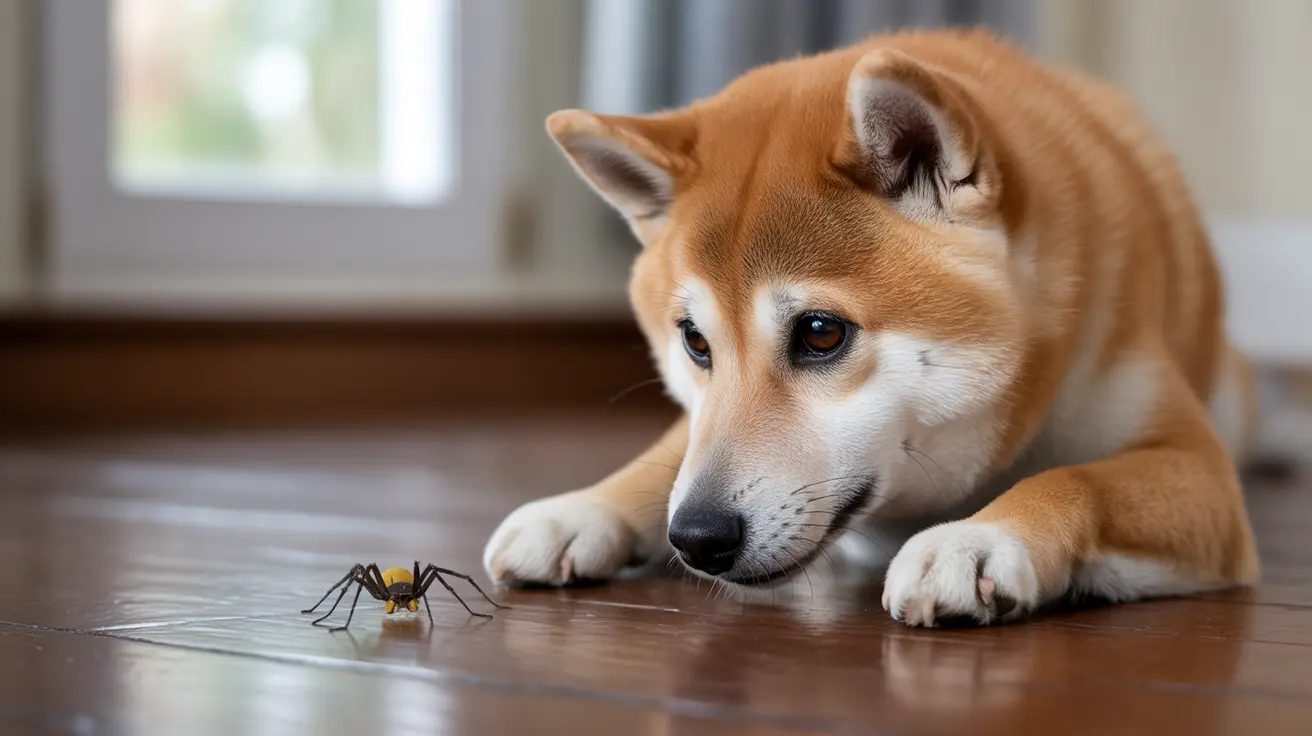Understanding Why Dogs Eat Spiders
Dogs are naturally curious creatures that often explore their world through their mouths. When they encounter a spider scuttling across the floor, their instinct to chase and catch moving objects kicks in. This behavior is perfectly normal, though it might not be something you want to encourage.
The Safety of Spider Consumption for Dogs
Most common household spiders are harmless if eaten by dogs. Their venom is protein-based and typically gets broken down by stomach acid before it can cause any harm. However, the real concern isn't usually about eating spiders - it's about getting bitten by one.
Dangerous Spider Species to Watch For
Two species pose significant risks to dogs in North America:
- Black Widow Spiders
- Brown Recluse Spiders
These spiders can cause severe reactions if they bite your dog, even if they're eventually eaten. Their venom can lead to serious health complications requiring immediate medical attention.
Signs Your Dog Has Been Bitten by a Venomous Spider
Watch for these warning signs that could indicate a dangerous spider bite:
- Sudden limping or favoring a particular area
- Swelling or redness at the bite site
- Muscle tremors or weakness
- Excessive drooling
- Difficulty breathing
- Vomiting or lethargy
- Changes in behavior or appetite
What to Do If Your Dog Eats a Spider
Non-Venomous Spider Scenarios
If your dog eats a common house spider, monitoring them for unusual reactions is usually sufficient. Most dogs won't experience any adverse effects.
Venomous Spider Situations
If you know or suspect your dog has eaten or been bitten by a black widow or brown recluse spider:
- Remain calm but act quickly
- Contact your veterinarian immediately
- Try to safely collect the spider (if possible) for identification
- Monitor your dog's symptoms while heading to the vet
Prevention Tips
To minimize the risk of your dog encountering dangerous spiders:
- Keep your home clean and free of clutter
- Seal entry points where spiders might get in
- Regularly inspect and clean dark corners and storage areas
- Use pet-safe pest control methods
- Supervise outdoor activities in spider-prone areas
Frequently Asked Questions
Can dogs safely eat spiders, or are spiders poisonous to them?
Most spiders are safe if eaten by dogs, as stomach acid neutralizes their venom. However, bites from venomous species like black widows or brown recluses can be dangerous and require immediate veterinary care.
What are the signs my dog has been bitten by a venomous spider like a black widow or brown recluse?
Look for symptoms such as limping, swelling at the bite site, muscle tremors, excessive drooling, difficulty breathing, vomiting, and lethargy. These signs require immediate veterinary attention.
What should I do if my dog eats a black widow or brown recluse spider?
Contact your veterinarian immediately. While eating the spider itself may not be harmful, a bite from these species during the encounter could be dangerous. Monitor your dog closely for any concerning symptoms.
Are there common household spiders that can harm my dog if ingested or bitten?
Most common household spiders are harmless to dogs, even if eaten. The primary concerns are black widow and brown recluse spiders, which are relatively rare in most homes.
How can I prevent my dog from eating spiders or getting bitten in my home or yard?
Keep your home clean and clutter-free, seal entry points, use pet-safe pest control, and supervise your dog outdoors. Regular cleaning and maintenance can significantly reduce spider populations in your living space.
Conclusion
While watching your dog eat a spider might be unsettling, it's usually not cause for alarm. Focus on prevention and being aware of dangerous species in your area. When in doubt, don't hesitate to contact your veterinarian, especially if you suspect exposure to a venomous spider.






